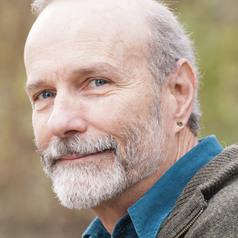
John Allan Webb
Associate professor, La Trobe University
John Webb specialises in groundwater and contaminated site management, with on-going research projects on improving treatment procedures for acid mine drainage, and on the influence of climate and land-use change on groundwater. He also works on geomorphology, particularly karst landscapes and neotectonism, and has utilised his geological background in a variety of archaeological projects.
Less ![]()
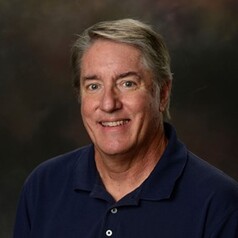
John C. Morris
Professor of Political Science, Auburn University
John C. Morris is a professor in the Department of Political Science at Auburn University. Dr. Morris teaches courses in collaboration, public policy, organization theory, privatization, and policy evaluation in both the Master of Public Administration program and PhD in Public Administration and Public Policy programs. He has won numerous teaching awards over the course of his career. He also serves on the editorial boards of two journals, has served on the program committee for three national conferences, and is a member of several professional organizations and honoraries.
His research interests include collaboration, public-private partnerships, water policy, federalism, and organization theory. He has published in journals such as Public Administration Review, Policy Studies Journal, the Journal of Politics, the American Review of Public Administration, Publius, Voluntas, Politics and Policy, State and Local Government Review, and Environmental Politics, among others. To date he has published twelve books, over 120 scholarly articles and book chapters, and delivered more than one hundred conference papers.
Less ![]()
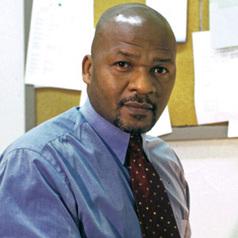
John C. Watson
Associate Professor of Journalism, American University
John C. Watson is an associate professor tenured in the Journalism Division. He brings a combination of professional experience and scholarly credentials to the classroom. A journalist for 21 years, he has a law degree and a Ph.D. His research on media law and journalism ethics has been has been presented at scholarly conferences and published in law reviews and refereed scholarly journals. He is the author of Journalism Ethics by Court Decree. He has conducted studies that question the ethical propriety of publishing police composite sketches of crime suspects, and weighs the merits of licensing journalists.
Less ![]()
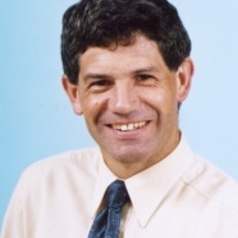
John Douglas Dunbar
Clinical Senior Lecturer in Surgical Science, University of Otago
I am an orthopaedic surgeon providing services in Maori Hill, Dunedin, New Zealand.
Less ![]()
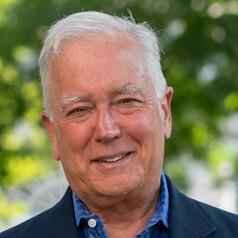
John E. Jones III
President, Dickinson College
Jones retired as chief judge of the U.S. Middle District Court of Pennsylvania. He was appointed to the federal bench by President George W. Bush and unanimously confirmed by the United States Senate on July 30, 2002.
Jones has presided over a number of high-profile cases. In 2003, Jones struck down portions of Shippensburg University’s speech code on the basis that it violated the First Amendment’s free speech guarantee. In that same year, Jones ruled in a decision later affirmed by the United States Supreme Court, that the U.S. Department of Agriculture’s statute assessing milk producers in order to fund advertising, including the Milk Mustache/got milk® campaign, did not infringe the free speech rights of the producers.
In 2005, Jones presided over the landmark case of Kitzmiller v. Dover School District, after which he held that it was unconstitutional to teach intelligent design within a public school science curriculum. In 2006, he ruled that the Commonwealth of Pennsylvania’s ballot access procedures for minor political parties did not violate the Constitution. In 2014, Jones resolved the matter of Whitewood v. Wolf by striking down as unconstitutional Pennsylvania’s ban on same-sex marriage.
Before becoming a federal judge, Jones was a lawyer in private practice in his hometown of Pottsville, Pa.
In November 1994, then Pennsylvania Governor-elect Tom Ridge named Jones as a co-chair of his transition team. In May 1995, Ridge nominated Jones to serve as chairman of the Pennsylvania Liquor Control Board.
Jones has received numerous accolades during his career. He received the Outstanding Alumni Award from the Dickinson School of Law, as well as an honorary doctorate in law and public policy from Dickinson College, where he was recognized as one of the 25 most influential graduates in the college’s history. In 2009, the college’s faculty voted to induct Jones into its Phi Beta Kappa chapter.
In 2006, Jones was named by Time magazine as one of its Time 100 most influential people in the world. He also received a Rave Award for Policy from Wired magazine and was the recipient of the first John Marshall Judicial Independence Award, given by the Pennsylvania Bar Association. In 2009, he was the recipient of the Geological Society of America’s President’s Medal, and in the same year he was inducted into the George Washington Spirit Society.
In 2013, Chief Justice John Roberts appointed Jones to the Committee on Judicial Security, a standing committee of the Judicial Conference of the United States, and in 2018 Roberts appointed Jones to the Committee on Space and Facilities.
Less ![]()
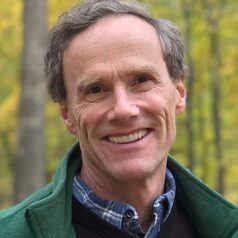
John Edward McCarthy
Professor of Mathematics, Arts & Sciences at Washington University in St. Louis
I am a mathematician, and work in the Mathematics and Statistics Department of Washington University in St. Louis. My primary interests are Operator Theory, One and Several Complex variables, and their interaction.
Less ![]()
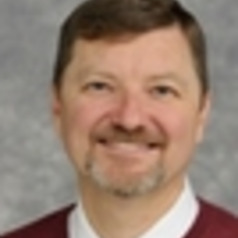
John F. Clark
Professor Politics and International Relations, Florida International University
Professor Clark specializes in the state-society relations of African polities and the international relations of sub-Saharan Africa. He is co-editor of Political Reform in Francophone Africa (1997, with David Gardinier), editor of The African Stakes of the Congo War (2002), author of The Failure of Democracy in the Republic of Congo (2008), and co-author of the Historical Dictionary of Congo (2012, with Samuel Decalo) and Africa’s International Relations (2018, with Beth Whitaker). He has also published over fifty articles and book chapters, including articles in / African Affairs/, the Journal of Democracy,/ the Journal of Modern African Studies/, Comparative Studies in Society and History, African Security, and the Africa Spectrum. During the 1999-2000 academic year he was a Fulbright lecturer and research scholar at Makerere University in Kampala, Uganda, and he made numerous research trips to the Republic of Congo and the Democratic Republic of Congo between 1990 and 2012. In the summer of 2014, Professor Clark was a Fulbright Specialist consultant at the Mbarara University of Science and Technology, where he was also Visiting Professor. He was awarded, with three collaborators, a grant by the American Political Science Association to organize a two-week workshop on Conflict and Political Violence in Nairobi, Kenya, in July 2015. He is currently studying the foreign policies of African states. Professor Clark served 6 years (2002-2008) as Chairperson of the International Relations Department at FIU and another 4 years (2016-2020) as the Chairperson of the Politics and International Relations Department at FIU.
Less ![]()
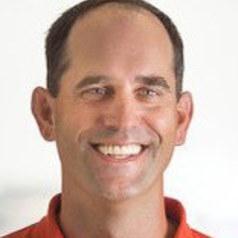
John F. Tooker
Professor of Entomology and Extension Specialist, Penn State
We study relationships among plants, insect herbivores, and natural enemies to understand factors that regulate populations of herbivorous insects. We are interested in both plant- and natural-enemy-mediated factors and how they influence insect behavior, community composition, and herbivore mortality. Our long-term goal is to exploit the ecology/biology of our study organisms to provide strategies and tactics for more sustainable insect pest management.
Education
B.S. - Bates College, 1992
M.S. - University of Illinois at Urbana-Champaign, 1999
Ph.D. - University of Illinois at Urbana-Champaign, 2003
Less ![]()
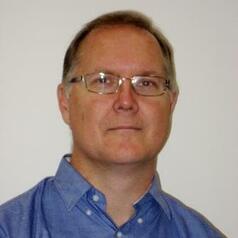
John G Conran
Senior Lecturer in Evolutionary Biology, University of Adelaide
My undergraduate degree was broad-based, including subjects from the Agriculture and Science Faculties, with majors in Entomology and Botany. In Honours, I studied systematics and population variation in Banksia oblongifolia (Proteaceae) and my PhD studied the evolution and ecology of the net-veined petaloid monocots growing in the rainforests at Springbrook, SE Qld.
Less ![]()
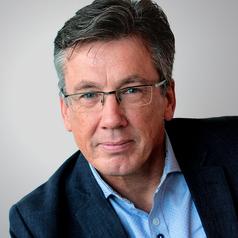
John J Oliver
Professor of Strategic Media Management, Bournemouth University
Prof. John Oliver is an experienced academic who has published in international media and business journals. He has a successful track record of delivering world class instrumental impact from his research. Most recently his research on the impact of crisis events on the levels of innovation and corporate financial performance influenced the UK Govts new ‘Build Back Better: our plan for growth’ and the Business, Energy and Industrial Strategy Committee's new 'Innovation Strategy’ which aims to incorporate long-term strategies that centre on business investment that drives innovation in the UK economy.
His research has made a demonstrable impact on UK Communications policy and regulatory decisions relating to Sky Plc and influenced the public policy debate on internet regulation. His research into ‘strategic organisational transformation’ created financial benefits for several world class management consultancies which resulted in direct economic impacts in terms of new jobs and multi-million pound investments made by FTSE 100 firms. The reach and significance of his Scenario Planning research has also extended outside the UK with a number of Middle East Government agencies changing their strategy practices, operational structures and capacity building capabilities in strategic communications.
He is an advisory board member for the Horizon Scanning & Foresight Committee (UK Parliament), and member of the Centre of Excellence and Profession in the Enterprise Portfolio Management Office (UK Parliament). He is a former President of the European Media Management Association, Academic Fellow at the Parliamentary Office of Science & Technology, and former Visiting Fellow at the University of Oxford.
Prof. Oliver has also held senior leadership roles as: Deputy Dean (Business School), Head of Research; Head of International Development (Faculty of Media & Communications); Professoriate representative to the Academic Standards Committee. As an executive trainer he has delivered executive education to clients like the BBC, ITV, Virgin Media, Sky, UKTV, Channel 4, FremantleMedia and Bell Pottinger.
Less ![]()
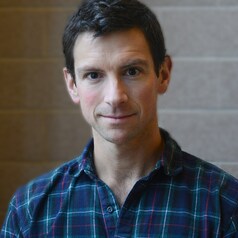
John J. Kaag
Professor of Philosophy, UMass Lowell
John Kaag is Donahue Professor of Ethics and the Arts at UMass Lowell and External Professor at the Santa Fe Institute. He is the author of the forthcoming Henry at Work: Thoreau on Making a Living (Princeton, June) and Hiking with Nietzsche, which was an NYT Editor Choice and NPR Best Book.
Less ![]()
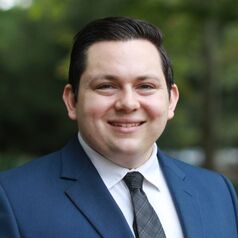
John J. Martin
Research Assistant Professor of Law, University of Virginia
John Martin's research focuses on election law, primarily campaign finance law and election administration. He is interested in whether and to what extent such laws advance democracy on the federal, state, and local levels.
Less ![]()
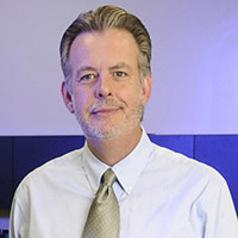
John J. Sloan Sloan III
Professor Emeritus of Criminal Justice, University of Alabama at Birmingham
John J. Sloan III is Professor Emeritus of Criminal Justice at the University of Alabama at Birmingham (UAB). During his 28-year career at UAB, he served in various administrative positions, including department chair, program director of two different graduate programs and as a research center co-founder, associate director, and director. His work has been funded by the National Science Foundation, the National Institute of Justice, the Office of Community Oriented Policing Services, the Office of Justice Programs, the Bureau of Justice Assistance, and by state and local agencies in Alabama. His research interests include crime and related issues on college campuses, specialized police agencies, professional ethics, and criminal justice policy.
Less ![]()
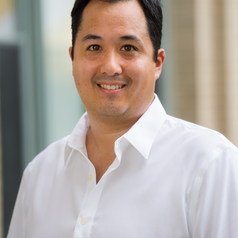
John Joseph Chin
Assistant Teaching Professor of Strategy and Technology, Carnegie Mellon University
John J. Chin is an assistant teaching professor with the Carnegie Mellon Institute for Security and Technology. He is the lead author of an Historical Dictionary of Modern Coups d'état (Rowman & Littlefield, 2022). He previously was a research coordinator and post-doctoral fellow with the Institute for Politics and Strategy at Carnegie Mellon University. He earned a B.A. from the University of Notre Dame (2006), M.P.P. from the University of Michigan (2008), and Ph.D. in politics from Princeton University (2017). Prior to entering academia, he was an international affairs analyst at the U.S. Congressional Budget Office.
Less ![]()
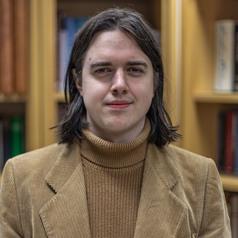
John Joseph Twomey
PhD Candidate of Applied Psychology, University College Cork
John Twomey is a human-computer interaction research in the UCC school of Applied Psychology. His current work focuses on the use of deepfakes and their impact on individuals and society. This work is funded by LERO/SFI Ireland.
Less ![]()

John Kendall Hawkins
Philosopher, University of New England
I am an American ex-pat poet and freelance journalist and lifelong student currently residing in Oceania. I'm a philosopher -- panpsychism, so residing, when you think about it, everywhere.
Less ![]()
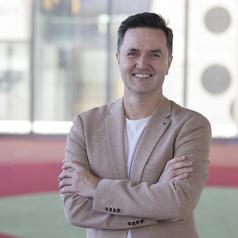
John L. Hopkins
Associate Professor of Management, Swinburne University of Technology
John Hopkins is an Associate Professor of Management and Innovation Fellow from Swinburne University of Technology. He has worked extensively in industry, for organisations such as General Motors and Cadbury, in addition to academic institutions in the UK, USA, Ireland and Australia.
John has been one of Australia’s leading experts on the topic of flexible and remote work practices for the past decade, and has worked on a range of workflex projects for both public sector and private sector clients, including: the Australian Fair Work Commission, NSW Public Service Commission, Transport for NSW, the Australian National Mental Health Commission, and the Australian Productivity Commission.
Specialising in survey, interview and case study-based methods, John's research has featured in many high ranking, peer-reviewed academic journals and industry publications, and John is regularly invited to provide expert opinion in the local, national and international media, for outlets like Channel 7 News, ABC News, SBS World News, ABC Radio, Forbes Magazine, The European Financial Review, World Economic Forum, The Age, The Australian Financial Review, The Australian, The Sydney Morning Herald, The Saigon Times and The Hong Kong Herald.
Less ![]()
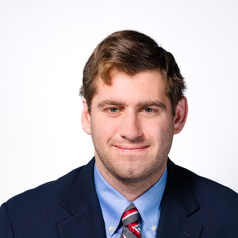
John Long Burnham
Policy Research Assistant, China Institute, University of Alberta
I currently work at the China Institute at the University of Alberta, having recently graduated with an MPP from the Max Bell School of Public Policy at McGill University. My professional background is in security and defence studies; in my current role, I produce war-gaming documents and non-classified briefings on military matters in the Indo-Pacific region for government clients. I have previously written for the NATO Association of Canada and I have been published by IRPP, CIDP, and SOAS.
Less ![]()
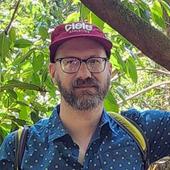
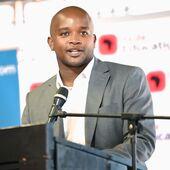
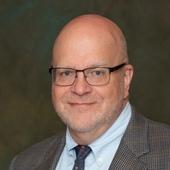
John P. Jackson, Jr.
Professor of History and Philosophy of Science, Michigan State University
Less ![]()

John P. Nelson
Postdoctoral Research Fellow in Ethics and Societal Implications of Artificial Intelligence, Georgia Institute of Technology
I'm a sociologist of science and technology committed to improving the sciences' ability to support and advance public values. At present, I am a postdoctoral fellow at the Georgia Institute of Technology researching the societal implications of artificial intelligence in manufacturing. My research interests include the human processes involved in developing, maintaining, and using knowledge; the governance and societal implications of emerging technologies; and the role of scientific knowledge and expertise in democracy. My research has appeared in academic journals including Research Policy, Minerva, the Journal of Responsible Innovation, and Futures.
Less ![]()
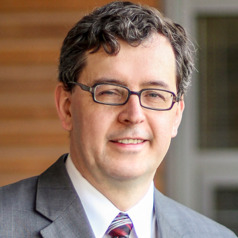
John Patrick Hunt
John Patrick Hunt’s area of scholarly interest is law and finance. His recent work focuses on student loan law; previously, his scholarship has addressed municipal bankruptcy, credit rating agencies, and mortgage securitization, transfer, and modification.
Before joining the UC Davis faculty in 2009, John was Research Director of the Law and Finance Program at the Berkeley Center for Law, Business and the Economy. He has also worked as a regulatory lawyer and litigator at two major law firms and as a credit derivatives research analyst. He holds a J.D. from Yale Law School and a Master’s in Financial Engineering from the U.C. Berkeley Haas School of Business, and served as a law clerk to the Honorable Stephen F. Williams of the U.S. Court of Appeals for the D.C. Circuit.
Hunt is a member of the American Law Institute.
Less ![]()

John Paul Cassella
Lecturer in Forensic Investigation & Analysis, Professor of Forensic Science Education, Atlantic Technological University
John Cassella
Professor of Forensic Science Education- Atlantic Technological University Republic of Ireland
I graduated with an honours degree in Medical Laboratory Sciences (Biomedical Science) and Chemistry from Leicester in 1988 and a Doctorate in Orthopaedic Pathology from the University College London in 1993 [Royal National Orthopaedic Hospital]. I have published widely in medical and related biomedical sciences and in forensics. Working in many of London’s major teaching hospitals in medical research, I also taught medical, radiography and podiatry students. As a lecturer in Biomedical Sciences and subsequently a University Reader in Biomedical Sciences and ‘Programme Leader’ for the Forensic Science degree at the University of Derby, I joined Staffordshire University in 2005. At Staffordshire University I taught elements of forensic pathology, techniques of Human Identification and body recovery from disaster situations. Conferred a Professorial Chair in Forensic Science Education in 2008 with over 75 journal publications as well as books and numerous national and international Conference presentations. I sit on a number of groups that work at a national level to promote the development and improvement of the delivery of forensic education and improve the links between academia, the forensic industry and UK Police Services. I was part of a former Home Office Group (now part of DSTL) for Search Techniques development for homicide victims and was a work stream lead for ‘rapid services and custody suites’ for the successful Staffordshire Police-Staffordshire University partnership. I am an ‘Associate’ of Kenyon’s International Emergency Services and was deployed to Grenfell Tower in 2017. In 2021, I worked with Police and mortuary staff in the Sandwell and West Birmingham NHS Trust mortuary based at Birmingham International Airport for Covid-19 victims. My current role in the at the newly created Atlantic Technological University in the Republic of Ireland, has allowed me to develop my teaching in forensic science with a better understanding of the European perspectives and to develop research into the location of homicide victims on the East coast of Ireland and ‘near body post mortem’ drugs testing.
Experience
2021- Present Lecturer in Forensic Investigations & Analysis, Atlantic Technological University Republic of Ireland
2005-2021 Professor of Forensic Science Education, Staffordshire University
1999-2005 Senior Lecturer, Reader in Biomedical Sciences, Head of BSc Forensic Science, University of Derby
1998-1999 Lecturer in Biomedical Sciences, University of Central England, School of Radiography & Podiatry, Birmingham
1996 – 1997 Post Doctoral Research Worker, Institute of Psychiatry, Department of Neuropathology, London
1993 – 1996 Post Doctoral Research Assistant, St Mary's Hospital Medical School, London
1990-1993 PhD, Royal National Orthopaedic Hospital, Institute of Orthopaedics, London
1989-1990 Research Assistant in Cell Pathology , St Thomas's Hospital, Institute of Dermatology, London
1988 – 1989 Research Assistant in Morbid Anatomy, The Royal London Hospital, Institute of Pathology, London
Education
BSc (Hons) Combined Studies in Medical Laboratory Sciences and Chemistry (1988)
1993 PhD Orthopaedic Pathology (University of London) Faculty of Science (1993)
PGCE Warwick University (Secondary Science, 1998)
Less ![]()

John Pierce O'Reilly
Researcher in Music, University of Oxford
I graduated with an Mst from Oxford in 2020 and, pending submission of corrections, will graduate with a DPhil in summer.
Less ![]()
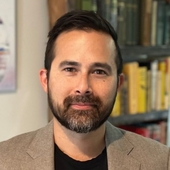
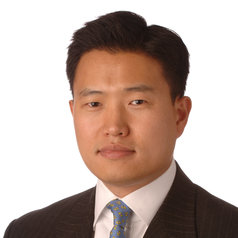
John S. Park
John Park is an adjunct lecturer at the Harvard Kennedy School and a research associate at MIT. He is also a faculty affiliate with the Project on Managing the Atom at the Harvard Kennedy School's Belfer Center for Science and International Affairs. He was the 2012–2013 Stanton Nuclear Security Junior Faculty Fellow at MIT's Security Studies Program. He previously directed Northeast Asia Track 1.5 projects at the U.S. Institute of Peace in Washington, D.C. These initiatives include the U.S.-China Project on Crisis Avoidance & Cooperation, the U.S.-ROK-Japan Trilateral Dialogue in Northeast Asia, and the U.S.-China-Japan Dialogue on Risk Reduction & Crisis Prevention. He advises Northeast Asia policy-focused officials at the Departments of Defense, State, and the Treasury, as well as on the National Security Council and congressional committees.
Dr. Park worked at Goldman Sachs, where he specialized in U.S. military privatization financing projects. Prior to that, he was the project leader of the North Korea Analysis Group at the Harvard Kennedy School's Belfer Center. He earlier worked in Goldman Sachs' M&A Advisory Group in Hong Kong and the Boston Consulting Group's Financial Services Practice in Seoul.
Dr. Park's publications include: "Assessing the Role of Security Assurances in Dealing with North Korea" in Security Assurances and Nuclear Nonproliferation (Stanford University Press, 2012); "North Korea, Inc.: Gaining Insights into North Korean Regime Stability from Recent Commercial Activities" (USIP Working Paper, May 2009); and "North Korea's Nuclear Policy Behavior: Deterrence and Leverage," in The Long Shadow: Nuclear Weapons and Security in 21st Century Asia (Stanford University Press, 2008).
His current research focuses on the North Korean regime's accumulated learning in evading targeted sanctions. Dr. Park received his M.Phil. and Ph.D. from Cambridge University and completed his pre-doctoral and post-doctoral training at the Harvard Kennedy School's Belfer Center.
Less ![]()

John Sunday Ojo
Doctoral Researcher at the School of Area Studies, History, Politics, and Literature, University of Portsmouth
John is a doctoral researcher at the School of Area Studies, History, Politics, and Literature, University of Portsmouth in the UK. He earned a Master of Arts in Global Development from the University of Leeds in the UK. He also received another Master of Science in Urban Management and Development, focusing on Environment, Sustainability, and Climate Change from Erasmus University Rotterdam in the Netherlands. He received his Bachelor of Science in Local Government Studies from Obafemi Awolowo University in Nigeria. An interdisciplinary approach to his research is deeply rooted in international development, international security, politics, conflict, and environmental governance. A comprehensive integration of these fields explores non-state armed groups, violent extremism, terrorism, governance, political violence, inter- and intra-state conflicts, natural resource conflicts, and peacebuilding. His works have appeared in several reputable publishing outlets, including Routledge, Palgrave Macmillan, and Springer Nature.
Less ![]()

John Tennyson Afele
Researcher, Department of Agroforestry, Kwame Nkrumah University of Science and Technology (KNUST)
John obtained his PhD from the Kwame Nkrumah University of Science and Technology . He seeks to understand tree-crop relationships as well as human interactions with these, as a result of climate change. Carries out both quantitative and qualitative research. His most recent work is on assessing alternative livelihood strategies undertaken by cocoa farmers in Ghana.
Less ![]()

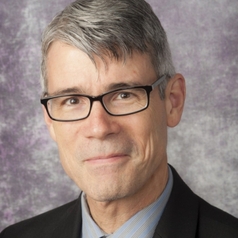
John V. Williams
Professor of Pediatrics, Microbiology and Molecular Genetics, University of Pittsburgh
John V. Williams, MD, is Professor of Pediatrics, Microbiology & Molecular Genetics; Henry L. Hillman Professor of Pediatric Immunology; Chief, Division of Infectious Diseases; and Director, Institute for Infection, Inflammation, and Immunity in Children (i4Kids). Dr. Williams is an international expert on the epidemiology, immunity, and pathogenesis of respiratory viruses.
The major focus of his research is the immunity and pathogenesis of human metapneumovirus (HMPV). His team described the epidemiology of HMPV, a leading cause of lower respiratory infection, and discovered that HMPV uses integrins as receptors to enter cells through endocytosis. His group discovered that HMPV and other respiratory viruses induce lung CD8+ T cell impairment via PD-1 signaling. Dr. Williams also leads CDC-funded surveillance studies of acute respiratory and gastrointestinal infections in children based at Children’s Hospital of Pittsburgh. He conducts collaborative research with clinical investigators at the University of Pittsburgh and international sites. He has participated in studies of respiratory virus epidemiology in North America, South America, the Middle East, and Africa. His group has published studies on coronaviruses, influenza virus, HMPV, parainfluenza viruses, respiratory syncytial virus, and rhinoviruses.
Less ![]()
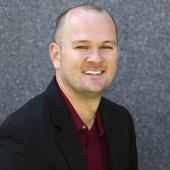
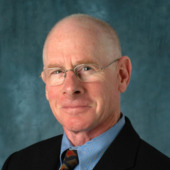
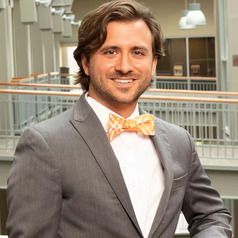
John-Patrick Paraskevas
Assistant Professor of Supply Chain Management, University of Tennessee
John-Patrick Paraskevas is an assistant professor of supply chain management at the University of Tennessee, Knoxville’s Haslam College of Business. Paraskevas earned his doctorate in supply chain management from the Robert H. Smith School of Business at the University of Maryland. His research focuses on buyer-supplier relationships, supply chain representation in the C-suite and supply chain risk management. His research has appeared in the Journal of Supply Chain Management, the International Journal of Operations and Production Management and Technovation. It also has been nominated for awards at the Academy of Management Conference, the Strategic Management Society Conference and by the Institute of Electrical and Electronics Engineers.
Paraskevas has worked in the defense industry in supplier network management and supplier finance. He has taught carrier management, introduction to supply chain and operations management, supply chain risk management and executive decision-making, receiving numerous commendations for teaching excellence.
Less ![]()
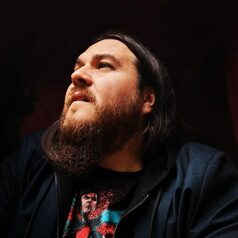
John-Paul Chalykoff
Assistant Professor in Anishinaabe Studies, Algoma University
John-Paul Chalykoff is an Assistant Professor in Anishinaabe Studies at Algoma University in Sault Ste. Marie, Ontario. He is a member of Michipicoten First Nation, an Ojibwe community in Canada on the north-east coast of Lake Superior, where he has also served as an elected councilor. His work focuses on utilizing music and puppetry to encourage learning and retaining Anishinaabemowin, the Anishinaabe language.
Earlier in his career, John-Paul graduated from Algoma University/Shingwauk Kinoomaage Gamig, where he completed a Bachelor of Arts in Anishinaabemowin. He went on to complete a Bachelor of Education from Lakehead University in Thunder Bay, Ontario, with qualifications to teach Native Studies and History. He completed additional qualifications to teach Ojibwe and French as Second Languages. In addition to being an Ontario Certified Teacher in Good Standing through the Ontario College of Teachers, he holds a Master of Education from Lakehead University.
Less ![]()
- Market Data




















